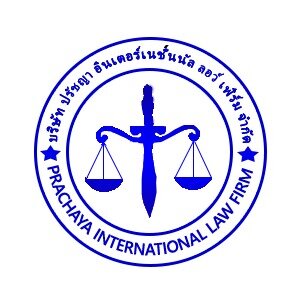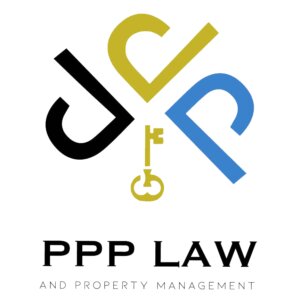Best Collaborative Law Lawyers in Huai Khwang
Share your needs with us, get contacted by law firms.
Free. Takes 2 min.
Free Guide to Hiring a Family Lawyer
List of the best lawyers in Huai Khwang, Thailand
Thailand Collaborative Law Legal Questions answered by Lawyers
Browse our 1 legal question about Collaborative Law in Thailand and read the lawyer answers, or ask your own questions for free.
- Divorce rights and obligations
- I am Dutch and married for 13 years with a Thai wife. Over the past 10 years we lived outside Thailand as I was an expat. From our marriage we have a daughter of 10 years and is studying at the international school. We have a house in Chiang Mai... Read more →
-
Lawyer answer by SORASAK LAWFIRM
Dear Sir, Subject: Family, Divorce & Separation, Contract and Collaborative Law Thanks you for your email received today. Incase of foreigner husband and Thai wife under Thai law, the marriage property will be forced by hasband's country law accept that...
Read full answer
About Collaborative Law in Huai Khwang, Thailand
Collaborative Law is an alternative dispute resolution (ADR) process designed to help parties resolve legal disputes, particularly in family and civil matters, without resorting to traditional court proceedings. In Huai Khwang, a vibrant district in northern Bangkok, collaborative law practices are increasingly accepted as an effective way to safeguard relationships, preserve privacy, and seek mutually beneficial outcomes. The process involves both parties working with trained collaborative lawyers who focus on negotiation, open communication, and problem solving rather than adversarial litigation. Collaborative law can be especially valuable for divorce, child custody, property division, and business disputes.
Why You May Need a Lawyer
There are several situations when engaging a collaborative lawyer in Huai Khwang can be helpful:
- Family Disputes: Divorce, child custody, visitation rights, and asset division often benefit from a less adversarial approach.
- Business Partnerships: Resolving disputes among business partners or shareholders without escalating to litigation can protect business interests and ongoing relationships.
- Property Settlement: Disagreements related to jointly owned property, inheritance, or distribution of assets can often be settled collaboratively.
- Employment Matters: Employee-employer disputes may be resolved amicably, ensuring parties maintain professional reputations and relationships.
- Personal Relationships: When friends or family members seek to resolve personal or financial disagreements, the collaborative process offers confidentiality and dignity.
Collaborative law focuses on voluntary cooperation, making it ideal for those who prefer to avoid the stress, cost, and publicity of court hearings.
Local Laws Overview
Thailand’s legal system incorporates elements of both civil and common law, governed mainly by written statutes. The Civil and Commercial Code and the Family Law Act form the foundation for most collaborative law cases, particularly in Huai Khwang. While collaborative law is not codified as a separate statute, its practice is permitted under Thai law within the framework of negotiation and mediation.
Key aspects relevant to collaborative law in Huai Khwang include:
- Voluntary Participation: All parties must agree voluntarily to participate in the collaborative process.
- Confidentiality: Information shared in the collaborative process is kept confidential and cannot usually be used in later court proceedings if the process fails.
- Legal Representation: Each party should have their own collaboratively trained lawyer to ensure balanced advocacy and fair process.
- Written Agreement: Successful collaborative resolutions result in a written agreement, which can be approved by the court for added enforceability if necessary.
- Withdrawal Clause: If the process breaks down, the collaborative lawyers must withdraw, and litigation lawyers take over, ensuring the focus stays on collaborative problem solving.
Frequently Asked Questions
What is the difference between collaborative law and mediation?
Both collaborative law and mediation are alternative dispute resolution methods. In mediation, a neutral third party helps facilitate a settlement, while collaborative law involves each party having their own collaborative lawyer, and all parties commit not to go to court during the process.
Is collaborative law legally recognized in Thailand?
While not governed by a separate statute, collaborative law is recognized as an acceptable dispute resolution approach under Thai laws regarding negotiation and out-of-court settlements.
Can collaborative law be used for divorce cases in Huai Khwang?
Yes, collaborative law is commonly used for divorce, child custody, property division, and other family law matters in Huai Khwang.
Are agreements reached through collaborative law enforceable?
Yes, agreements reached through the collaborative process can be formalized and, if necessary, approved by the court, making them legally enforceable.
What happens if the collaborative process fails?
If either party decides to end the collaborative process, the current collaborative lawyers must withdraw from the case, and the parties are free to seek new legal representation for court proceedings.
How confidential is the process?
The collaborative process is highly confidential. Discussions and documents exchanged are protected and typically cannot be used in subsequent litigation.
Do I need to hire a lawyer or can I handle collaborative law myself?
While you can negotiate directly, having a lawyer trained in collaborative law ensures that your interests are protected and that the process follows proper legal principles.
How long does the collaborative law process take?
Timeframes vary depending on the complexity of the dispute, but collaborative law is typically faster than traditional court cases because parties control the schedule.
How much does collaborative law cost in Huai Khwang?
The cost is generally lower than full-scale litigation, although fees depend on the nature of the dispute and lawyer rates. Fee structures should be discussed at the outset.
Where can I find a collaborative law lawyer in Huai Khwang?
Many law firms in Bangkok, including those serving Huai Khwang, have lawyers trained in collaborative law. Local bar associations and legal directories can also provide recommendations.
Additional Resources
For individuals seeking more information or assistance with collaborative law in Huai Khwang, the following resources may be helpful:
- Law Society of Thailand - Professional body regulating lawyers and providing referrals
- Ministry of Justice - Information on ADR services and access to justice initiatives
- Bangkok Legal Aid Centers - Nonprofit organizations and community legal clinics
- Huai Khwang District Office - Assistance with administrative and legal queries
- Thai Bar Association - Support and information on specialized legal services
Next Steps
If you believe that collaborative law may be appropriate for your situation, consider the following steps:
- Assess your dispute and determine if all parties are willing to pursue an alternative to court litigation.
- Contact a lawyer in Huai Khwang with expertise in collaborative law to discuss your case and understand the process.
- Prepare relevant documentation and outline your goals and priorities for resolution.
- Initiate the collaborative law process with professional guidance, ensuring clear communication and cooperation.
- If needed, seek support from local legal resources or organizations to address any questions or concerns along the way.
Engaging in collaborative law can save time, reduce conflict, and help all parties reach a satisfying and legally binding outcome without the burdens of court proceedings.
Lawzana helps you find the best lawyers and law firms in Huai Khwang through a curated and pre-screened list of qualified legal professionals. Our platform offers rankings and detailed profiles of attorneys and law firms, allowing you to compare based on practice areas, including Collaborative Law, experience, and client feedback.
Each profile includes a description of the firm's areas of practice, client reviews, team members and partners, year of establishment, spoken languages, office locations, contact information, social media presence, and any published articles or resources. Most firms on our platform speak English and are experienced in both local and international legal matters.
Get a quote from top-rated law firms in Huai Khwang, Thailand — quickly, securely, and without unnecessary hassle.
Disclaimer:
The information provided on this page is for general informational purposes only and does not constitute legal advice. While we strive to ensure the accuracy and relevance of the content, legal information may change over time, and interpretations of the law can vary. You should always consult with a qualified legal professional for advice specific to your situation.
We disclaim all liability for actions taken or not taken based on the content of this page. If you believe any information is incorrect or outdated, please contact us, and we will review and update it where appropriate.









